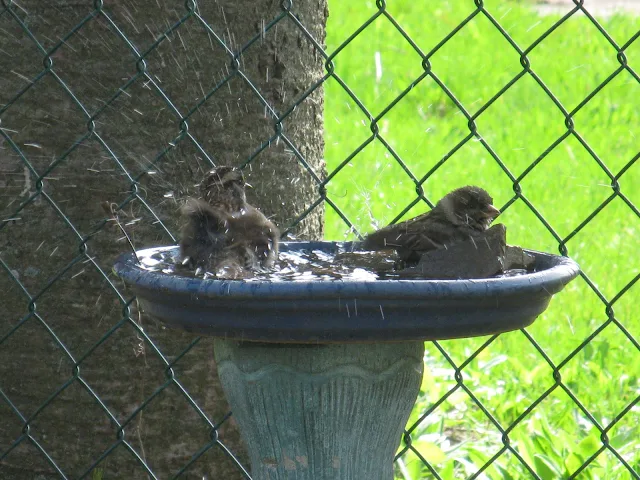Here is the text I read at the Zoom online book launch for several of this years new Ekstasis Editions books, including my own The Green Archetypal Field of Poetry, on poetry, poets, and psyche. This event was online on Sunday, 15 May 2022 at 2 p.m.----------------------
Book Launch, Zoom, 15 May 2022, 2 p.m.
Place in Poetry
Thank you to Richard Olafson for publishing these books that are being launched today, and thank you to Endre Farkas and Carolyn-Marie Souaid for organizing this book
launch.
This book, The
Green Archetypal Fields of Poetry, on poetry, poets, and psyche isn't poetry so maybe I should just say a few words to introduce the book.
This is my second book with Ekstasis Editions on poetics and memoir,
on becoming a poet. The first book was A Poet's Journey: On Poetry and what it Means to be a Poet. Thank you Richard, I really appreciate your work for
poetry.
The background to the book, what created it, its reason for having been written, is that we live in a
place, a city or a community, and this is a commitment to a specific
geographical location, it is also a spiritual location. For me, this location, this place, is
Montreal. In fact, the whole book refers to Montreal. Montreal is my psychic
centre.
But think of place in the work of Charles Olson, it's Gloucester; or William Carlos Williams, it's Paterson; or Raymond Souster, it's Toronto; and for Louis Dudek and John Glassco, it's Montreal.
Montreal is where modern English Canadian poetry was born.
If you were a poet in Canada you wanted to live, even for a short time, in
Montreal. PK Page, Phyllis Webb, and many others lived here for a while, and
this is the birth place in the 1920s of the Montreal Group of Poets at McGill University; they included FR
Scott, AJM Smith, and John Glassco; also in Montreal were others, Louis Dudek, Irving Layton,
and AM Klein.
This is where we came from and we haven't left.
I also wrote about the Vehicule Poets, "Starting
Out from Vehicule Art Gallery", a history of our early days as poets, the
Sunday afternoon readings, and that essay is in the book. Of course, the Vehicule Poets are in
the line, the lineage, of the Montreal Group and other groups of poets that started here. That is our canonical lineage because all poetry is a part of a canon
and a lineage of poets and poetry, however poetry changes it is always in the context of
a lineage.
There is also our ancestral heritage in Montreal.
For me, personally, my family have lived and worked here since 1840; not as
long as my Quebecois and Quebecoise friends, and certainly not as long as the Indigenous people, but still a long time, and I have written
about this as well, for instance the Morrissey Family History website.
Poets aren't nomads and we're not from nowhere. We're from a specific place, but this specificity of place is being lost in the economic and political globalism of the world, in every city you visit the condos are all the same, the stores and music we hear is the same, the politics is divided, and what is specific and local is being lost.
More specifically, my psychic centre, what made me
the person I am today, is my family history but this is located and symbolized in my grandmother`s home on
Girouard Avenue in Montreal`s West End. No one had money but family kept us
together.
So place works on a number of different levels, it
works as a geographical place, but it's also an ancestral and spiritual
place, it's what formed us as people, it's the the birth of psyche.
That's how I became a poet, it began here in the
City of Montreal.
Montreal is our home as poets, it's our centre as poets.
Here is a short excerpt from The Green Archetypal Field of Poetry:
We are increasingly living in a
deracinated world, in a global community, but a global community is an
abstraction, an invention of committees and legislation and driven for profit
and by people’s personal ambition; it is an intellectual construct, it is not
born organically, a process that may take hundreds of years of human migration,
political and military strategies, layers of cultural change, and spiritual
vision. There is also a spirit of place; spirit of place manifests in the
natural world, but it also includes our ancestral memory and family history and
stories. If we are not careful we will soon be living in Huxley's Brave New World or Orwell’s 1984 world of geographical regions and
the repression of creative individuality, not places of vibrant specificity
that are containers of soul. A geographical place is specific and local, it is
not abstract but concrete; globalism is an abstract concept that has little or
no connection to community or place. Abstraction denies the specificity of
place; place emphasizes the diverse world of things. Poetry requires community;
it requires the diversity of a specific place.
Thank you all for being so patient and listening to
this.
.JPG)
.JPG)
.JPG)
.JPG)
.JPG)















.JPG)
.JPG)
.JPG)




.jpg)
.jpg)
.JPG)
.JPG)
.JPG)
.JPG)
.JPG)
.JPG)













.jpg)
.jpg)
.jpg)
.jpg)